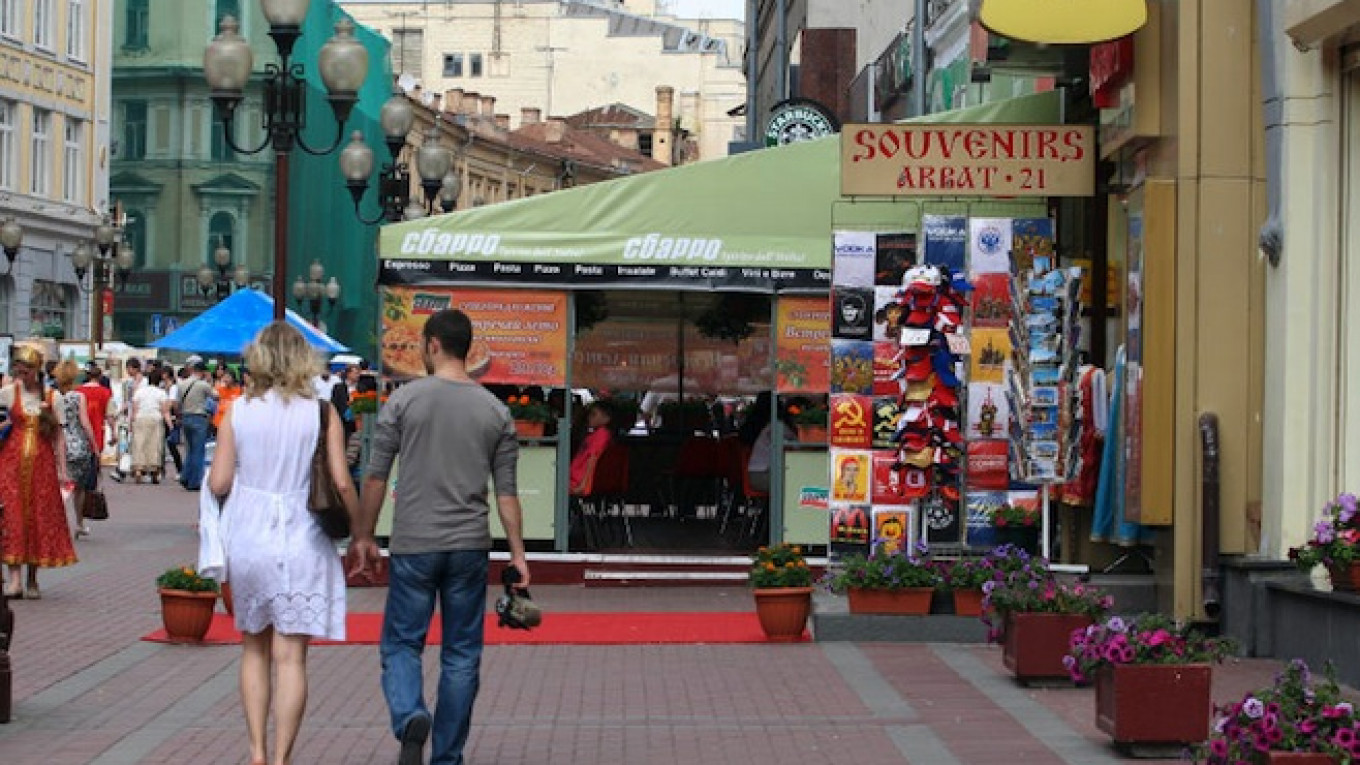Apartments in Moscow's tony Arbat and Tverskoy districts are emptying out as Russia's economic downturn pushes expats out of the country, real estate agency Knight Frank reported late last week.
“Due to the recent outflow of a large number of expats from Moscow, the vacancy rate has risen significantly, specifically in the Arbat and Tverskoy districts,” Knight Frank analyst Olga Tarakanova was quoted as saying in a press release.
Vacancies in top-flight Moscow real estate have shot up as Russia's economy veers toward recession and international corporations take their foreign staff out of the country, Tarakanova told The Moscow Times in January.
Russia's economy is expected to shrink by as much as 5 percent this year as low oil prices and Western sanctions over the Ukraine crisis choke off investment. The fall of the ruble, which has sunk around 30 percent against the U.S. dollar since the start of last year, has been particularly taxing for companies that pay their executives in dollars or euros.
Arbat, a district centered around a pedestrian-only street west of the Kremlin, accounted for 24 percent of apartments for rent in Moscow at the end of March at a price of $10,000 or more per month. Tverskoy, which extends north from the Kremlin to the Belorusskaya metro station, accounted for 18 percent of all apartments listed in this price bracket.
These areas, replete with tsarist-era palaces and turn-of-the-century apartment blocks, are beloved by both foreigners and Muscovites who appreciate the districts' historical look, according to Knight Frank.
“The well-developed infrastructure and historical look of these areas attract expats, young entrepreneurs, intellectuals and members of the diplomatic corps of foreign states,” Tarakanova said.
Apartments near the Moscow-City business district took up 16 percent of vacancies in the over-$10,000 sector, while the Ostozhenka neighborhood, located near Christ the Savior Cathedral, accounted for 13 percent of vacancies, the report said.
A Message from The Moscow Times:
Dear readers,
We are facing unprecedented challenges. Russia's Prosecutor General's Office has designated The Moscow Times as an "undesirable" organization, criminalizing our work and putting our staff at risk of prosecution. This follows our earlier unjust labeling as a "foreign agent."
These actions are direct attempts to silence independent journalism in Russia. The authorities claim our work "discredits the decisions of the Russian leadership." We see things differently: we strive to provide accurate, unbiased reporting on Russia.
We, the journalists of The Moscow Times, refuse to be silenced. But to continue our work, we need your help.
Your support, no matter how small, makes a world of difference. If you can, please support us monthly starting from just $2. It's quick to set up, and every contribution makes a significant impact.
By supporting The Moscow Times, you're defending open, independent journalism in the face of repression. Thank you for standing with us.
Remind me later.


